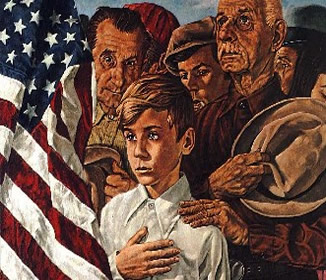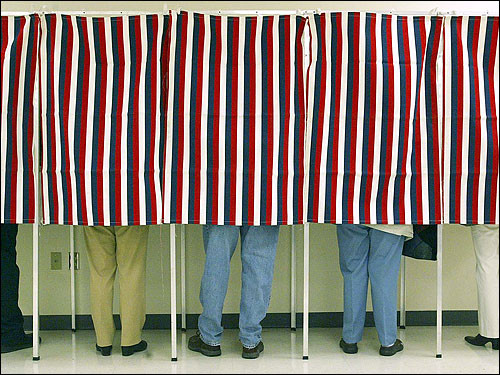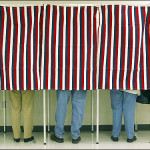News & Updates

Our Lives, Our Fortunes, Our Sacred Honor
As we celebrate Independence Day, I’m reminded of a day in 2002 that brought me as close as I’ll ever get to those who began the quest for an independent nation. It was March, I was in Washington D.C. on business, the tulips were in full bloom, the cherry trees around the tidal basin were nearly in bloom and I had some time to kill. I’d never been to the National Archives so I decided to head that direction. Since it was March, the hordes of summer tourists had not yet descended on the city, the line was short, and I walked right in.
As I approached the Charters of Freedom exhibit in the Rotunda, the diffused light gave it an eerie feeling. Then suddenly I was looking at the Magna Carta, the Declaration of Independence, and the Constitution of the United States. The last line of the Declaration in particular caught my eye. It read, “And for the support of this Declaration, with a firm reliance on the protection of Divine Providence, we mutually pledge to each other our lives, our fortunes, and our sacred honor.”
It’s not possible to be in that place, looking at those documents, reading those words and not think about what was left to us by our Forefathers. Have we done a good job maintaining the republic that they pledged their lives to create? Would they look at the United States today and be proud of us? What words of encouragement would they give? Would there be words of rebuke?
Somehow I believe they would understand how difficult it is to keep people with wildly divergent worldviews all pulling together in the same direction. I believe they were also students of human nature, and human nature never changes. The struggles they faced nearly 300 years ago are the same struggles we face today. They may look a little different because of advances in science and technology, but at their core they are still driven by the same human desires, passions, and vices. Give Today!
Later that afternoon I had an appointment to visit the diplomatic reception rooms in the State Department. When you arrive you find yourself in a re-creation of an 18th Century mansion; it’s actually a working museum. The furniture is original Duncan Phyfe and Chippendale, the paintings on the walls are original, and the Benjamin Franklin State Dining Room is four times larger than the State Dining Room in the White House.
One of my favorite rooms is the John Quincy Adams State Drawing Room, and for good reason. Near the entrance is a stand-up writing desk, upon which Thomas Jefferson penned part of the Declaration of Independence. To think of Jefferson standing at that desk concentrating, trying to come up with just the right words, gave me goose bumps. Then I turned and saw a corner cabinet filled with exquisite silver: tea cups, coffee cups, gravy boats, knives, and spoons. The mere beauty of each piece was enough to admire. Then I found out that many of the pieces were made by none other than Paul Revere.
Here I was, standing beside a desk that Thomas Jefferson penned the Declaration of Independence on, looking at silver made by Paul Revere, having earlier in the day seen the original Declaration of Independence and the United States Constitution. I must admit, for someone who loves America and loves history, it was a bit overwhelming. As we celebrate the Fourth of July this year, let’s remember our heritage, rely once again on the protection of Divine Providence, and pledge once again our lives, our fortunes, and our sacred honor.

Purpose of the GOP Convention
Three weeks ago the Idaho Republican Party convention ended in a free for all, with 130 delegates being disqualified, no deal on a party platform, and no Party Chairman. To say it was a fiasco would be a huge understatement. Last week’s Montana Republican convention, by comparison, was uneventful and that’s just how Party Chairman Will Deschamps wanted it. There was some speculation that competing factions within the legislative delegation could erupt in fireworks, but there was no sign of that, at least not publicly.
The main purpose of a platform convention is to allow delegates from across the state to come together and vote on a document that essentially says, “This is what we believe.” The document as a whole is called the platform. Each area of policy within it is called a plank. There are planks for agriculture, Indian affairs, business, education, and so on. Committees take a look at each plank and refer any proposed changes to the convention delegation as a whole.
This is where it gets interesting. Some people call it much ado about nothing, arguing that some legislators forget the platform exists as soon as they get to Helena. Others see the language as a litmus test for candidates who call themselves Republicans. Either way, there are delegates at the convention willing to die on certain hills. For example, the agriculture plank that says, ” Republicans recognize agriculture as a premier industry,” isn’t likely to be controversial, but a move by a Yellowstone County delegate to strip the phrase, “we support the definition of marriage as between one man and one woman,” from the National Affairs plank was an entirely different story. The reaction was swift and decisive. Three-quarters of the committee voted “No”. Contrast that with the same plank in the Democrat Party platform, which supports the repeal of the Montana Marriage Amendment. Any attempt to change that wording in the Democrat platform would predictably meet the same demise. Another litmus issue would be abortion; Republicans oppose it, Democrats support it, and any attempt to change that language in either platform would meet withering opposition.
The biggest changes in this year’s Republican platform had to do with how elections are conducted, and they focused mainly on two areas. The first was a move towards closed primaries. This grew out of an effort by the Teachers Union to encourage Democrats to crossover and vote for liberal Republicans in the primary. Republicans argue that Democrats shouldn’t be allowed to pick Republican candidates for the November ballot. Closed primaries would require registration by party and only Republicans would be allowed to vote on the Republican ballot.
The second major change called for runoff elections if one candidate didn’t get a majority of the votes. They argued that Governor Bullock and Senator Tester both received less than 50% and people are frequently elected with less than 50% in primaries with three or four candidates vying for the same office. As predicted, moderate members of the party voted “no” on each proposal while the conservatives voted “yes.” In the end, both passed easily but require changes in law to take effect. So for now, they are just policy statements and that’s what party platforms really are. Just statements that say, “this is what we believe. If you think the same way, then come join us.”

Ballot Initiatives: The Pure Power of the People
 With all the talk of primaries and candidates it’s easy to forget another political force percolating in the background. I’m talking about Montana’s proposed ballot initiatives. A chance for citizens to avoid the legislative process and make laws directly without the input of the House, the Senate, or the Governor. Some say it’s pure democracy, a way for voters to assert their authority while bypassing the political pitfalls of a legislative session. Others, usually legislators, say it’s a way to leverage low-information voters to pass bills that would never stand up to the rigorous scrutiny of a legislative hearing. I tend to be in the former camp. My operating premise is, when in doubt trust the voters.
With all the talk of primaries and candidates it’s easy to forget another political force percolating in the background. I’m talking about Montana’s proposed ballot initiatives. A chance for citizens to avoid the legislative process and make laws directly without the input of the House, the Senate, or the Governor. Some say it’s pure democracy, a way for voters to assert their authority while bypassing the political pitfalls of a legislative session. Others, usually legislators, say it’s a way to leverage low-information voters to pass bills that would never stand up to the rigorous scrutiny of a legislative hearing. I tend to be in the former camp. My operating premise is, when in doubt trust the voters.
People confuse ballot initiatives with ballot referendums. The clue is in the names. Initiatives are initiated by the people. They require signatures from 5% of the qualified voters in the state to place the issue on the ballot. Referendums, on the other hand, are passed by the legislature and are referred to the people for a vote. They bypass the governor and the people themselves get the final say.
Those opposed to ballot initiatives say they are too easy to get on the ballot, but the evidence shows the contrary. Of the number of the proposed initiatives in any given election cycle, only one or two ever make it to the ballot. Contrast that with nearly 2,000 bills in a legislative session, hundreds of which will eventually become law. Ballot initiatives are the last line of defense in a government, “of the people.”Give Today!
In the current election cycle, 15 initiatives have been proposed. So far, 12 have completed the rigorous process required for signature gathering to begin. The deadline for gathering signature is 5:00 p.m. on June 20th. At that point, the county election administrators must certify the signatures and pass them on to the Secretary of State by July 18th. Then we will know how many initiatives have qualified for the ballot.
Of the 15 proposed initiatives, four of them are mere opposites of each other. Ballot Issue Number One would legalize marijuana, while Ballot Issue 18 would reiterate that all drugs that are illegal under federal law would remain illegal under Montana law. The legalization initiative appears stalled, while the one to make it illegal still appears to have a chance. It was approved for signature gathering on May 29th, giving it an extremely short window to gather the necessary signatures.
Other initiatives are interesting and some are just plain bizarre. In the interesting category is the initiative to ban trapping on public lands, and in the bizarre category is the proposal to require the legislature to be made up of 50% men and 50% women, neither of which will probably make it to the ballot. In the dangerous category, is the so-called “Dark Money Initiative.” It would require groups like the Montana Family Foundation to divulge its list of donors. Its main goal is to chill free speech, intimidate donors and drive them out of the process. Needless to say we’re happy that it failed. Give Today!
Two other competing initiatives are one to increase the Medicaid roles, a necessary component of Obamacare, and its offset, a proposal to prohibit the use of Montana resources to administer Obamacare. Both failed to get the necessary signatures. So, as you can see, qualifying an initiative to the ballot is extremely difficult. By July 18th we will know which ones make it, and which ones will have to wait for another day.
A Mayor’s Political Blunder
In what might be the biggest political miscalculation of the year, Billings Mayor Tom Hanel announced on Monday evening that he was changing his vote and would allow a proposed, so-called Non-Discrimination Ordinance to be drafted. These ordinances have been used around the country to harass people of faith and recently resulted in a Colorado baker being ordered to take sensitivity training because he refused to take part in a homosexual marriage ceremony.
Predictably, emotions on both sides were running high, and hundreds of people showed up for the hearing. Hanel thought that if he announced early that he would change his vote, people would get discouraged and go home. The move backfired and just the opposite occurred. The hearing began at 6:30 p.m. and finished at 7:00 a.m. the next morning, setting the record for the longest public hearing in Billings City Council history, and this wasn’t even the vote on the actual ordinance. It was just a vote to continue with the drafting process. Give Today!
Hanel’s actions did nothing less than widen an already growing rift in the community and put an upcoming vote on the safety mill levy increase in jeopardy. Who in their right mind would vote for a tax increase that will be used in part to fund enforcement of an ordinance that makes criminals out of citizens for simply following God’s Word? Hanel thought a quick vote would diffuse the situation, but instead he just threw gas on the fire.
This is shaping up to be a Battle Royale with citizens threatening the ordinance with a ballot initiative, if it passes. These NDOs do nothing but fragment and divide communities. Pastors are outraged, citizens are up in arms, and even the City Council is fractured, and for what? To solve a nonexistent problem.
Proponents of NDOs claim they stop discrimination on people based on their sexual orientation in the areas of housing, employment, and public accommodation. In the four Montana cities that have passed NDOs, they’ve never been used, not even once. Passing a law, hopefully, acts as a deterrent, but it never reduces the incidence of that crime to zero. Never. The fact that no one has ever been charged under one of these ordinances proves that the City Councils courageously solved a nonexistent problem.
People in Montana live and let live. What they don’t want is to be forced to participate in an act that they find offensive, such as a same-sex commitment ceremony. A Christian wedding planner should no more be forced to plan a same-sex wedding than a gay ad agency should be forced to create an ad singing the praises of the Westboro Baptist Church. Jewish schools should not be forced to hire Muslim teachers and a Muslim caterer should not be forced to serve pork at a barbecue. All of these violate religious freedom, freedom of speech, and freedom of association. The First Amendment either means something or it doesn’t. The Establishment and Free Exercise Clauses of the Constitution were put there to protect religious freedom.
Citizens should never be forced to choose between God and government. The very idea runs contrary to the most deeply held belief of the Founders themselves. Mayor Hanel needs to step back and remember the proper role of city government. Setting water and sewer rates is one thing, trampling religious freedom is quite another.

True Tolerance vs. Forced Participation
What would Montana look like if the government could force you to say something you did not believe, or force you to participate in an activity that violates your conscience? It would forever change who we are as a people, and it’s closer to happening than you may think.
Forced Participation Ordinances (FPOs), or Non-Discrimination Ordinances (NDOs) as our opponents like to call them, supposedly ban discrimination of homosexuals, bisexuals and transvestites. FPOs have already passed in Missoula, Helena and Butte, and efforts are underway to pass them in Bozeman, Billings and Dillon, as well. Groups like Forward Montana, the ACLU and the Montana Human Rights Network, with major funding from out-of-state donors, are pushing hard to pass FPOs in as many cities as possible before the next legislative session. We’ve killed these laws in the legislature for over a decade, so our opponents are changing tactics. They hope to pass them in as many cities as possible between now and January and then use the momentum to get the legislature to pass a state-wide law.
What they really do is –
- Trample Religious Freedom
- Threaten public safety
- Grant more power to municipal courts than they are supposed to have
In other states where these ordinances have passed, Christian business owners –
- have had their businesses shut down and threatened with jail time for refusing to participate in same-sex weddings (Washington, Oregon, Colorado, New Mexico)
- have been fined for refusing to print t-shirts that promote Gay Pride (Kentucky)
- have been sanctioned for saying they do not support same-sex marriage (Vermont)
The public has also had to endure men who say they’re women exposing themselves to young girls in public showers and locker rooms (Washington, Colorado).
Is this right?
Is this what we want Montana to become?
Give Today!The Montana Family Foundation is currently fighting FPO’s in three cities, and just last week we won a major victory. “Not in Our Town”, a once venerable group in Billings, which has since been hijacked by pro-homosexual activists, tried to get the Billings City Council to give them $25,000 to host a conference in June of this year. Ironically, their conference is being held at the exact same time and place as the Republican Convention, thus putting pressure on lawmakers to pass a statewide law. We got word of the request, and 50 of our supporters showed up to tell the City Council that taxpayer money should not be used to promote political agendas. The outcry resulted in a Billings Gazette editorial urging the City Council to reject the request. This proves that good things happen when citizens get involved.
Butte was the last easy win our opponents will have. The ordinance is stalled in Bozeman and Dillon, and a group has already formed to oppose it in Billings. We need to remind government officials that there’s a big difference between true tolerance and forced participation. True tolerance is what we have now. In fact, Montana is so tolerant that our opponents have trouble pointing to any examples of discrimination. The Missoula ordinance was passed three years ago and the Helena ordinance was passed nearly two years ago, and neither has been used. Not even once. If this becomes state law, Montana’s live-and-let-live attitude will give way to forced participation, and Christians will become targets.
